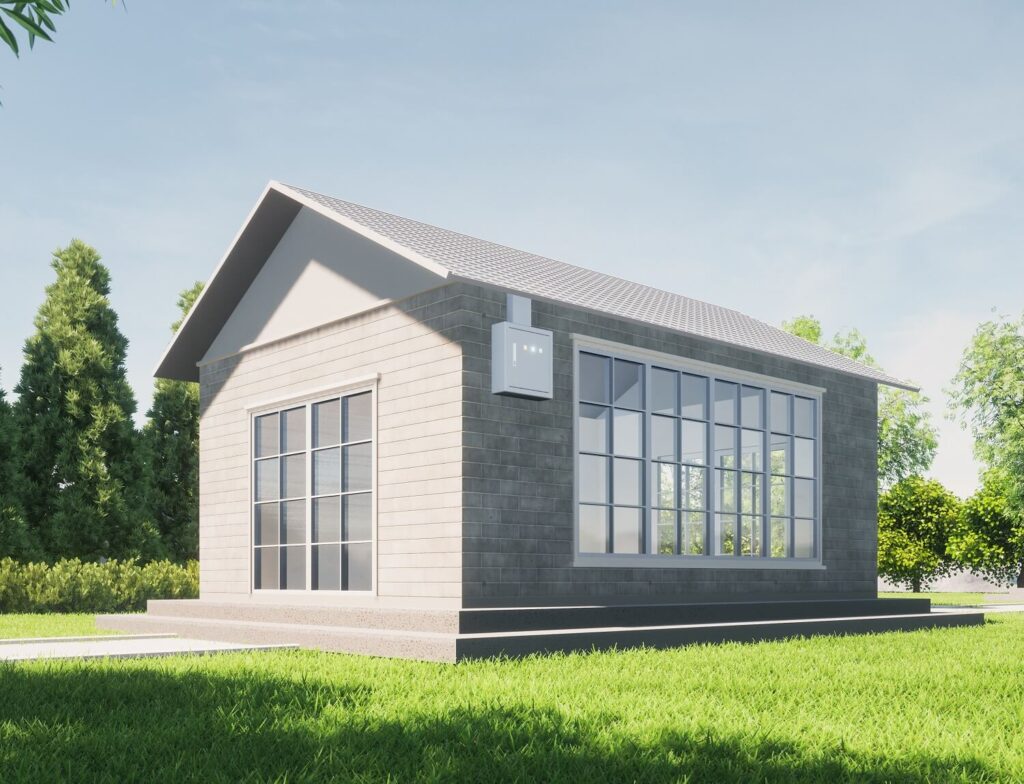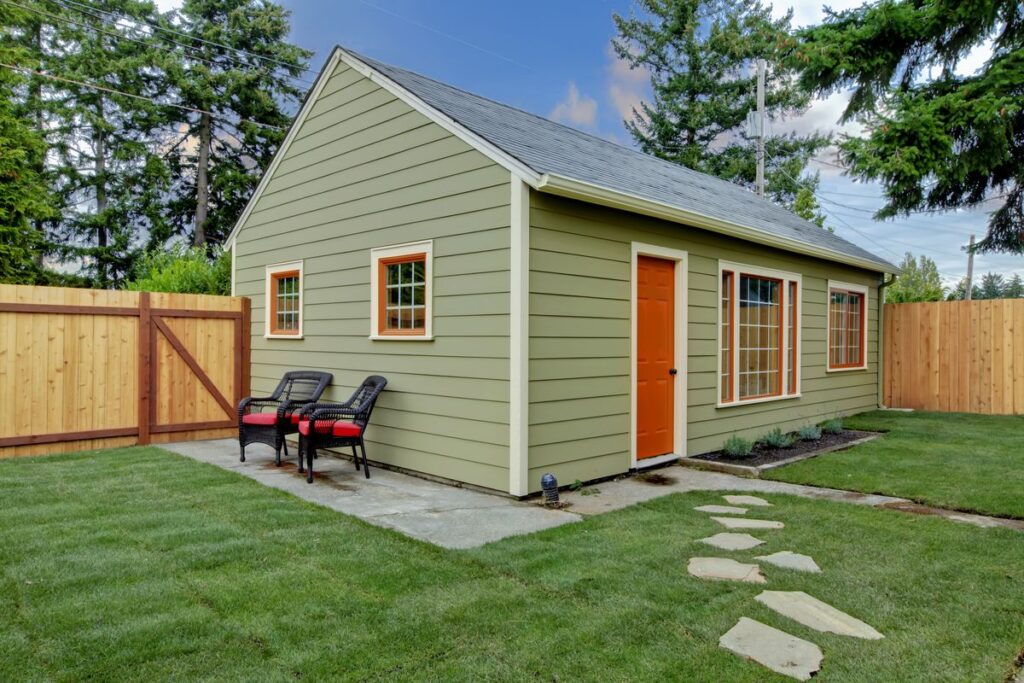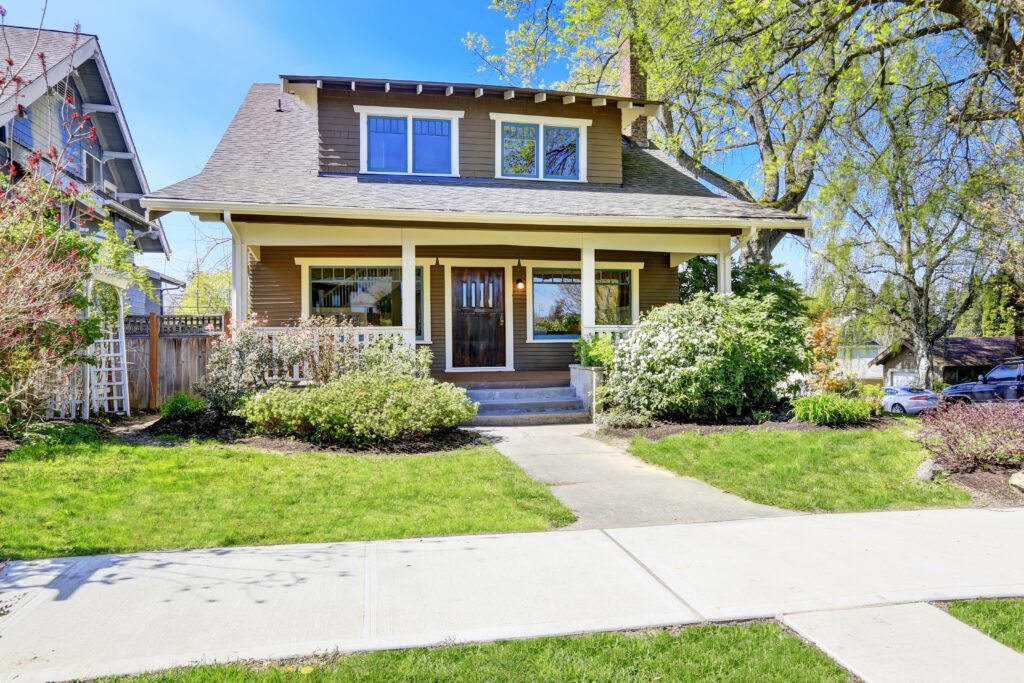Accessory dwelling units (ADUs) have become the go-to choice for homeowners seeking to maximize their property’s potential. Unlike traditional home additions, ADUs provide a separate living space right on your existing property. This means you can accommodate additional family members or generate rental income without sacrificing privacy or disrupting the main house. The benefits of building an ADU are numerous and undeniable. From creating a flexible living arrangement to increasing property value and addressing housing shortages, ADUs offer a smart solution for homeowners looking to make the most out of their space. In this guide, we will explore why ADUs are gaining popularity and how you can embark on your own ADU project with confidence.
Understanding ADUs
Definition and Types
ADUs, or accessory dwelling units, are self-contained living units that can either be attached to or detached from the main house. They provide homeowners with additional living space that can be used for various purposes. There are three main types of ADUs: detached units, garage conversions, and basement ADUs. Detached units are separate structures built on the same property as the main house. Garage conversions involve converting an existing garage into a livable space. Basement ADUs are created by finishing or renovating an existing basement area. Each type of ADU offers unique advantages and can be tailored to suit different homeowner needs.
Zoning Regulations
Zoning regulations play a crucial role in determining where ADUs can be built and what requirements they must meet. Many cities have relaxed zoning regulations to encourage the construction of ADUs as a means of increasing housing options and addressing affordability issues. However, it is important for homeowners to understand their local zoning regulations before starting an ADU project. This will ensure compliance with any restrictions or guidelines that may apply.
Building Codes
Building codes are established standards that govern the construction and safety of buildings, including ADUs. Compliance with building codes is essential to ensure that ADUs meet safety and structural standards, providing occupants with a high-quality living space. Homeowners considering an ADU project should work with professionals who have knowledge of local building codes to ensure compliance throughout the construction process.
Benefits for Homeowners
Financial Advantages
Renting out an Accessory Dwelling Unit (ADU) can be a smart financial move for homeowners. By having an ADU on their property, homeowners can generate a steady stream of rental income. This extra income can help offset mortgage payments or other expenses, providing homeowners with more financial stability. Building an ADU may make homeowners eligible for tax benefits or incentives, further enhancing the financial advantages.
Increased Property Value
One of the major benefits of having an ADU is the potential increase in property value. Adding an ADU to a property can significantly boost its market value. The presence of an ADU makes the property more appealing to potential buyers who are looking for additional living space or investment opportunities. When it comes time to sell their property, homeowners with ADUs can expect a higher return on their investment due to the increased market value.
Housing Flexibility
Another reason why ADUs are a smart choice for homeowners is the flexibility they offer in terms of living arrangements. These units can serve multiple purposes and adapt to changing needs over time. Homeowners can use them as guest houses when friends or family come to visit, creating a comfortable and private space for guests. They also make excellent home offices that provide separation from the main living area while still being conveniently located on the same property. Furthermore, ADUs offer a solution for multigenerational households by providing separate living spaces for aging parents or adult children who desire independence while remaining close to family.
Addressing Housing Needs
Easing Housing Crisis
ADUs are a smart choice for homeowners because they help address the housing crisis in several ways. First, they increase the available housing stock without the need for extensive new construction. By utilizing existing space on their property, homeowners can create additional living units that provide affordable housing options. This is particularly important in areas where housing prices are skyrocketing and there is a shortage of affordable homes.
Encouraging the construction of ADUs can alleviate the strain on existing housing markets. With more rental options available, individuals and families have greater access to affordable housing. Renting an ADU is often more cost-effective than renting a larger, standalone property. For potential homeowners, building an ADU allows them to create affordable housing solutions within their own property, making homeownership more attainable.
Affordable Housing
One of the main benefits of ADUs is that they offer more affordable housing options for renters or potential homeowners. The lower cost of renting an ADU compared to a larger property makes it an attractive option for individuals or small families looking to save money while still having a comfortable living space.
Building an ADU also provides an opportunity for homeowners to generate additional income by renting it out. This extra income can help offset mortgage payments or other expenses, making it easier for homeowners to afford their own homes.
Community Impact
ADUs contribute positively to the development of vibrant and diverse communities. They promote social interaction and a sense of community among residents by providing opportunities for neighbors to live in close proximity to one another. This can foster stronger relationships and create a supportive network within the neighborhood.
The presence of ADUs can enhance neighborhood livability by adding diversity in terms of age groups, socioeconomic backgrounds, and family structures. It creates a mix that enriches community life and encourages people from different walks of life to come together.
Exploring ADU Options
Detached Units
Detached accessory dwelling units (ADUs) offer homeowners the opportunity to have a separate living space while maintaining their privacy. These units provide complete privacy and separation from the main house, allowing homeowners to enjoy their own personal oasis. The design flexibility of detached units is also a major advantage, as they can be customized to suit specific needs. Whether it’s a cozy guest cottage or a spacious home office, detached ADUs can be tailored to meet individual preferences.
Garage Conversions
Converting a garage into an ADU is an excellent way to maximize existing space without expanding the footprint of the property. This option is particularly cost-effective since it utilizes underutilized garages and transforms them into functional living areas. Homeowners with unused or cluttered garages can benefit from this conversion by creating additional living space for family members or even renting it out for extra income.
Basement ADUs
Basement ADUs are ideal for homeowners who have unfinished basements or extra space below their homes that is not being utilized effectively. By converting these areas into livable spaces, homeowners can expand their living area without altering the exterior structure of their homes. Basement ADUs provide an affordable solution for increasing square footage and meeting housing needs.
Age-Friendly Design
Accessibility Features
ADUs, or accessory dwelling units, offer homeowners the opportunity to create living spaces that are designed with accessibility features in mind. These features are particularly important for individuals with disabilities or mobility issues. By incorporating universal design principles, ADUs can be made accessible to everyone, ensuring that all occupants can comfortably use the space.
An accessible ADU promotes inclusivity and allows people to age in place. It provides a living environment where individuals can navigate easily and independently without barriers. Features such as wider doorways, grab bars in bathrooms, and ramps instead of stairs can make a significant difference in enhancing accessibility.
Safe Living Designs
Safety is a top priority for homeowners. These additional living spaces can be designed with various safety features to ensure a secure environment for occupants. Adequate lighting both inside and outside the unit helps prevent accidents and improves visibility at night.
Secure entrances with proper locks and sturdy doors provide peace of mind for tenants. Fire safety measures like smoke detectors, fire extinguishers, and fire-resistant materials further enhance the safety of the ADU.
By prioritizing safe living designs, homeowners not only protect their tenants but also increase the value of their property. Potential renters or buyers will appreciate the attention given to safety measures when considering whether to live in or invest in an ADU.
Cost Considerations
Building Expenses
The cost of building an Accessory Dwelling Unit (ADU) can vary depending on factors such as size, design, and location. Homeowners should budget for construction costs, permits, and professional fees to ensure a smooth building process. By planning properly and working with experienced contractors, homeowners can effectively manage their building expenses.
Long-term Savings
Investing in an ADU can lead to long-term financial savings. Renting out the ADU generates additional income that can offset mortgage payments or property taxes. This extra income stream can help homeowners build equity and increase their overall financial stability. If homeowners choose to use the ADU as a home office or workspace, they may save on commuting costs.
By renting out the ADU, homeowners have the opportunity to generate passive income while maximizing the use of their property. This additional source of revenue can contribute significantly to long-term savings and provide a sense of financial security.
Maximizing Space
Design Efficiency
ADUs are a smart choice for homeowners because they are designed to maximize space efficiency and functionality. With thoughtful design choices, homeowners can optimize the use of available square footage and create well-designed living spaces that meet their specific needs. For example, clever storage solutions and multipurpose furniture can help maximize space in smaller ADUs.
Functional Layouts
Another benefit of ADUs is the opportunity to create functional layouts tailored to individual preferences. Homeowners can customize the interior layout of their ADU to suit their lifestyle and requirements. This means they can have rooms arranged in a way that makes sense for them, whether it’s an open-concept design or defined rooms for specific purposes like a home office or guest room.
Functional layouts enhance livability by ensuring optimal use of space. For instance, having a separate entrance to the ADU allows for privacy and convenience for both the homeowner and any potential tenants or guests. Homeowners can incorporate features such as flexible living areas or built-in storage to make the most out of every square foot.
Legal Requirements
Permits and Approvals
Before homeowners can start building an Accessory Dwelling Unit (ADU), they must first obtain the necessary permits and approvals from their local authorities. The specific permitting processes may vary depending on the location and zoning regulations in place. However, one thing remains consistent: homeowners need to comply with legal requirements to ensure a smooth construction process.
Working with professionals who are familiar with the permitting process can be immensely helpful. These experts understand the intricacies of obtaining permits and can guide homeowners through each step, saving them time and effort. By streamlining the approval timeline, homeowners can move forward with their ADU project more efficiently.
Compliance Challenges
Building an ADU involves meeting various requirements and regulations, which can present challenges for homeowners. From adhering to building codes to ensuring compliance with zoning laws, navigating these complexities is crucial for a successful project.
To overcome compliance hurdles, it’s essential to consult with experts who specialize in ADU construction. These professionals have in-depth knowledge of the specific rules governing ADUs and can provide valuable guidance throughout the process. They will help ensure that every aspect of the ADU meets all necessary legal standards.
Creative ADU Uses
Home Office Space
ADUs provide homeowners with the opportunity to transform them into comfortable and functional home office spaces. Working from home has become increasingly popular, and having a separate ADU can offer a dedicated and distraction-free environment. Imagine having a peaceful sanctuary where you can focus on your work without interruptions. With an ADU, you have the flexibility to create an ideal workspace that promotes productivity and work-life balance.
Guest Accommodations
One of the smartest uses for an ADU is providing convenient guest accommodations for visiting family and friends. Instead of squeezing guests into limited space within your main house, an ADU allows them to enjoy privacy and independence. They will appreciate having their own separate living area while staying with you. You can furnish the ADU with all the necessary amenities to ensure your guests feel comfortable and welcomed during their stay.
By utilizing your ADU as guest accommodations, you are not only enhancing your guests’ experience but also maximizing your own privacy in your main house. It’s a win-win situation for everyone involved.
In addition to these creative uses, there are many other possibilities for making the most of your ADU. Some homeowners choose to use it as a rental unit, generating additional income. Others may convert it into a studio or workshop space for artistic pursuits or hobbies.
Conclusion
So, there you have it! Accessory Dwelling Units (ADUs) are truly the smart choice for homeowners. Not only do they provide a range of benefits, from increased rental income to addressing housing needs, but they also offer flexibility and creative opportunities. By maximizing space and considering age-friendly design, homeowners can create a comfortable and functional living space that suits their unique needs.
Now that you understand the advantages of ADUs, why not explore the possibilities for your own property? Whether you’re looking to generate extra income or accommodate multigenerational living, ADUs offer a practical solution. Remember to consider the legal requirements and cost considerations, but don’t be afraid to get creative with your ADU design. With the right approach, an ADU can enhance your lifestyle and provide valuable opportunities for both you and your community.
Maximize Your Property with Accessory Dwelling Units by Red White & Blue Construction!
Are you considering an accessory dwelling unit (ADU) in Lafayette, CA? Look no further than Red White & Blue Construction, your trusted ADU specialists! Transform your property with a custom ADU that caters to your changing lifestyle needs. Renowned for our expertise in ADU projects, we’re here to turn your ideas into reality, be it a cozy backyard cottage, a stylish in-law suite, or a functional home office. Our proven track record in the Bay Area stands as a testament to our commitment, craftsmanship, and the exceptional standards we uphold in every undertaking.
At Red White & Blue Construction, we’re more than just builders; we’re architects of your ideal living solution. With our transparent pricing and exceptional client service, you’re not just adding an ADU; you’re investing in a versatile, value-adding extension of your home. Choose Red White & Blue Construction for your ADU project. Embark on a journey of Property Enhancement Excellence and contact us today!
Disclaimer
The materials available on this website are for informational and entertainment purposes only and not to provide advice. You should obtain advice concerning any particular issue or problem from a professional. You should not act or refrain from acting based on any content included in this site without seeking legal or other professional advice. The information presented on this website may not reflect the most current building developments. No action should be taken in reliance on the information on this website. We disclaim all liability concerning actions taken or not taken based on any or all of the contents of this site to the fullest extent permitted by law.





